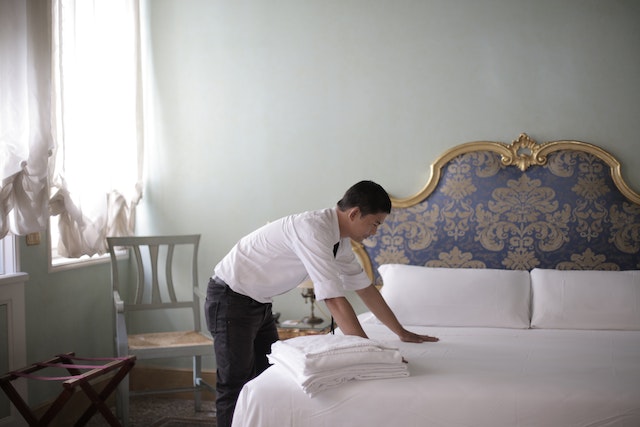
How to Choose Quality Sheets for Better Sleep
Bedding is important when it comes to getting good sleep. People all over the world have actually spent $87 billion in total on bedding in 2021 with around 66% of people continuing to use flat sheets. Most people choose to use a comforter or blanket when they sleep.
About 32% of Americans wash their sheets once every week, although more than half of American couples change their sheets every two weeks. 51% of single American men actually wash their sheets once every two and a half months. Many Americans have acknowledged that they are too busy to change their sheets often with others simply saying they usually forget.
Changing your bed sheets is an important task, but so is washing your bedding properly. Experts say that it’s best to wash pillowcases and sheets every week. On the other hand, blankets shouldn’t go unwashed for more than three months while pillows should be cleaned about every six months. In the U.S., 24% of people didn’t know that they should wash bedding regularly while 19% of people believe showering before bed is enough to keep the sheets clean.
Interestingly, a survey gauging the amount of satisfaction people had with their quality of sleep showed that people who went just 12.8 days between washes were very satisfied. Those who were very unsatisfied with their sleep went almost 20 days between washes. In fact, 68% of Americans continue to struggle with falling asleep at least once every week. If you’re seeing tearing or holes, noticing seams splitting, smelling odors even after washing, or waking up with allergy symptoms, it might be time to change your sheets.
When it comes to choosing sheets, one important factor to look at is the material. Linen and sustainable plant-based fibers are both fairly breathable fabrics while silk and cotton are comfortable during all four seasons. Polyester is a non-breathable fabric, but in terms of bedding, it’s the most durable and affordable.
Cotton quality is also an important factor to consider as longer staples (or length of the fibers used for the fabrics) create more durable and softer sheets. Egyptian cotton is usually used to make extra-long staple cotton while “100% cotton” can typically be seen with short staple cotton. Paying attention to the weave can be beneficial as well as they can change the durability and softness of the sheets. There are three weaves you can choose from: percale, sateen, and twill, with percale being a fine weave and twill being thicker.
In terms of thread count, higher means smoother, more durable sheets that can be thicker and heavier than lower thread counts. Ply is the number of fibers that go into making one thread with single-ply having a softer texture and higher durability that comes with a tight weave and two-ply having a rougher feel and lower durability attributed to a loose weave. There are typically two different sheet sizes to choose from with standard covering seven to 14 inches and deep fitting 11 to 17 inches. Color can be a necessary quality to think about as well if you are worried about cleanliness, promoting a more restful sleep, or stimulating morning wakefulness.
No matter what choices you make for your sheets, finding ones that align with your preferences can be beneficial to your sleep.
